August 2022 Eurorack module round-up
This month’s best new Eurorack releases include a pair of stereo modules from Noise Engineering and Xaoc Devices, instant IDM from Mystic Circuits and a Serge-inspired sequencer from Ukraine. Greg Scarth checks out August’s bumper selection.
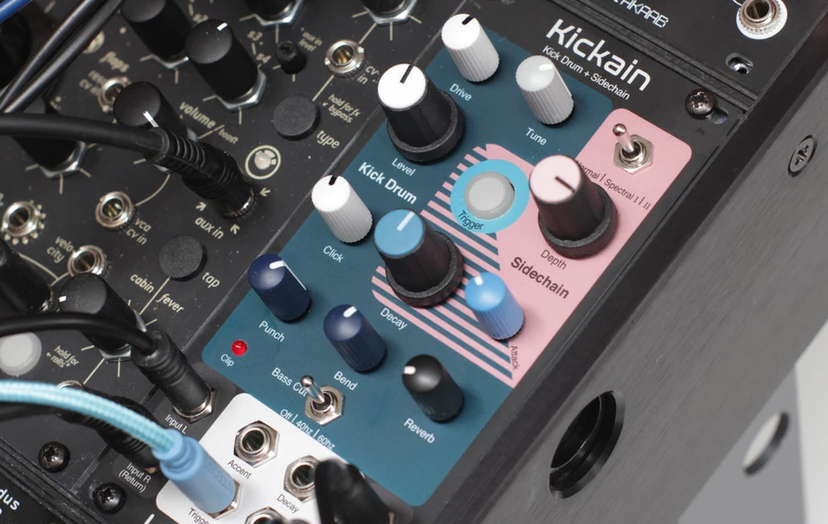
Knobula Kickain
Before we get stuck in to this month’s best new modules, a quick word about one of our favourite releases of last month, which we reviewed in depth a few weeks ago. Knobula’s Kickain is a virtual analogue kick drum module mashed together with a sidechain compressor and dynamic EQ. It’s a really clever approach to combining excellent kick synthesis with some more advanced processing, making it easy to duck your bass parts with the kick, set up dynamic modulation or pump the whole stereo mix buss. It’s a great module which simplifies and streamlines handy techniques. You can read our full review of the Knobula Kickain here.
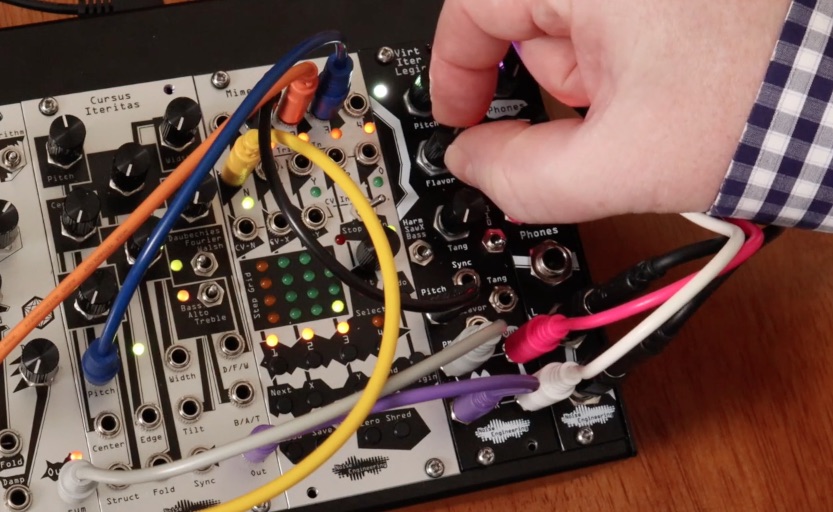
Noise Engineering Virt Iter Legio
We kick off this month’s new releases with Noise Engineering’s new Virt Iter Legio, a stereo oscillator module in 6hp. Legio is the brand’s new platform, launching with the Virt Iter and the Librae dynamics processor. Much like the Versio platform which we’ve featured numerous times on these pages, the Legio modules will all be based around the same hardware and DSP power, with different firmware and front panels for each. You can swap the firmware or even customise it, allowing you to take advantage of a range of effects no matter which version you opt for (you can even repanel the modules if you want to update the controls to match your favourite firmware).
The Virt Iter features three algorithms based on those which Noise Engineering contributed to the excellent Arturia MicroFreak, and also found in their free Virt Vereor plugin. Bass (pronounced like the fish) is a weighty, distorted oscillator setting which can go into metallic, FM-like territory at higher Flavor (saturation when in Bass mode) and Tang (wave folding) settings. SawX is a supersaw oscillator with chorus and phase modulation, doing some nice phasey sounds as you adjust Flavor (gain into a modulus stage). Harm is a sinusoidal additive mode with distortion, producing delicate clean tones which can generate harmonics with the Flavor control and thicken up with the Tang control (partial rectification). The stereo implementation is simple and easy to use, with stereo phase modulation and vintage-inspired chorus to add width. In summary, it’s a simple but exciting module with loads of depth, and a very promising debut for the Legio platform.
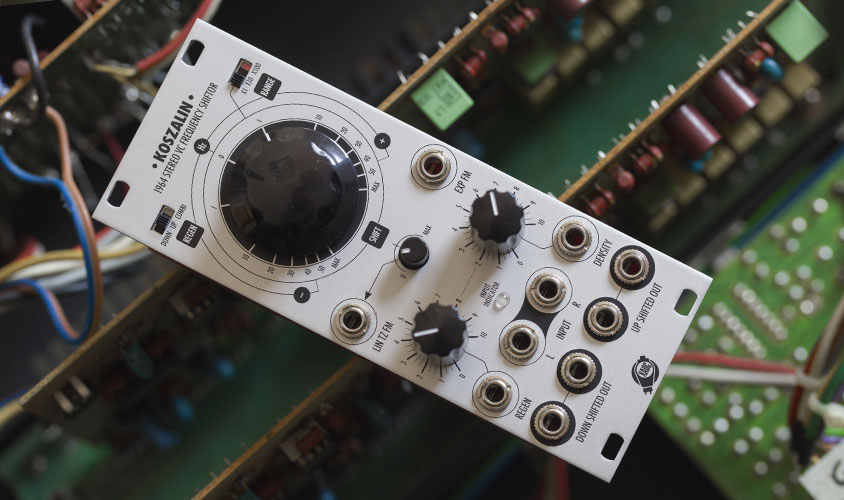
Xaoc Devices Koszalin 1964
It’s a nice coincidence that Xaoc Devices have served up the Koszalin 1964 digital frequency shifter this month, giving us the perfect stereo processing module to feed the Virt Iter into. Frequency shifting is often confused with pitch shifting, but the effect is quite different, shifting all frequencies of the incoming signal by a fixed number of Hertz rather than a proportion. The practical difference is that pitch shifting maintains the same harmonic components of the original signal, albeit at a different frequency, whereas frequency shifting alters the harmonics as well as the pitch.
The Koszalin specialises in the kind of dissonant, awkward harmonics which define the frequency shifting sound, but the way it’s done is particularly effective here thanks to clever stereo implementation and a fairly small number of controls, allowing you to focus on creativity rather than getting bogged down in technicalities. The manual goes into some detail about the nuances of thru-zero FM and using feedback to create filtering effects, but it’s a module which you can enjoy even without getting techy and understanding all the science behind how it works. Frequency shifting is an effect which is quite easy to overdo, but the Koszalin’s precise control allows you to stay in the sweet spot, adding wonky complexity to signals for unique FX and bleeps.
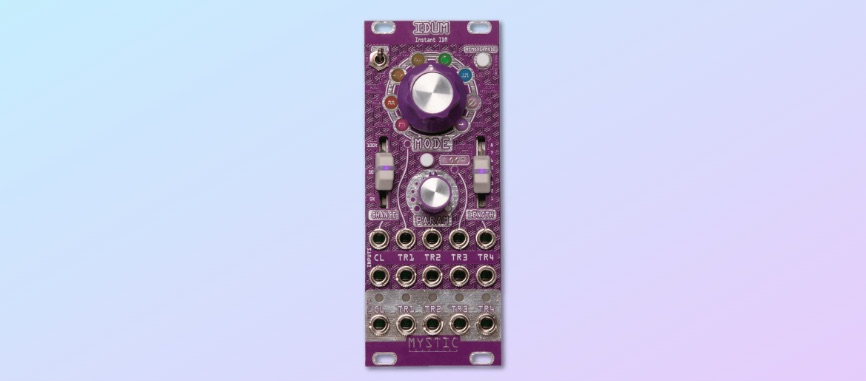
Mystic Circuits IDUM
It’s quite unusual to find Eurorack modules which are designed for a specific genre. Drone and noise are fairly well catered for, but we can’t recall ever seeing a module aimed exclusively at, say, techno or hip-hop. Mystic Circuits have broken that rule with the IDUM gate processor – pronounced “I dumb” – a module which proudly proclaims Instant IDM on its front panel. Feed the module with a clock signal and four gate inputs, then IDUM processes them and turns them into something subtly or drastically different, depending on which of the eight modes you select and a few basic parameters.
There’s so much creative potential here that IDUM seems like a bit of a steal at £265 for a completely unique sequencer/processor. The video manual alone exceeds the hour mark, hinting at how many options you have and how many different ways you can approach warping and mutating your sequences. If you’re concerned that the results might be lazy Aphex Twin and Autechre pastiches, fear not; there’s a certain familiarity to some modes, but others allow you to explore new rhythmic ground, not just for IDM but for trappy hi-hat patterns or interesting electro/house/techno programming. Percussion sequencing is the obvious application, but there’s no reason you can’t use it for melodic parts too. Mystic Circuits say that IDUM “straddles the line between brilliance and stupidity” but we’re leaning towards the former. An extremely fun module with a unique approach.
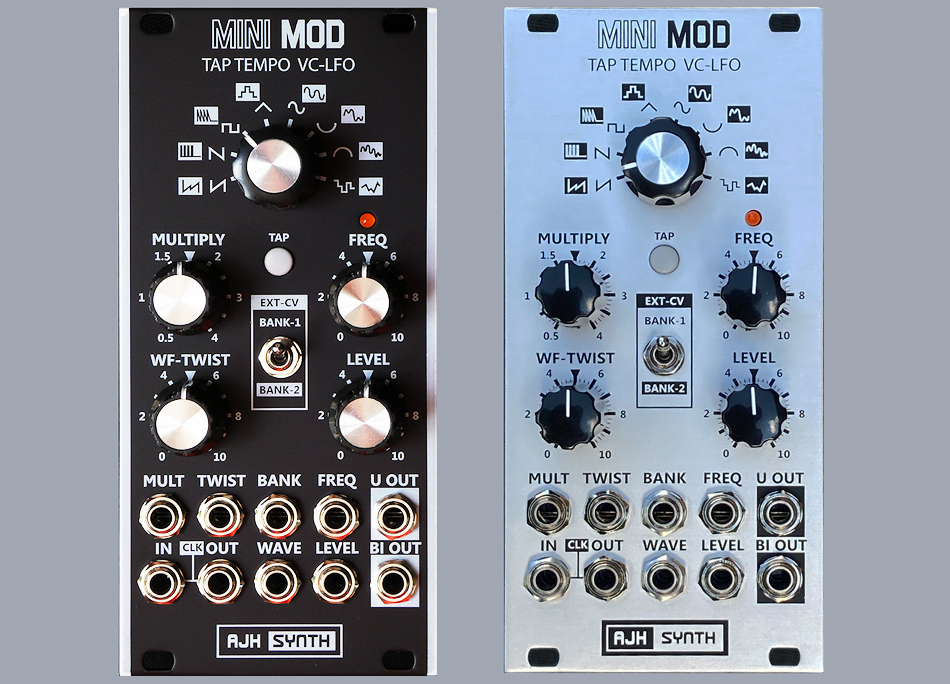
AJH Synth MiniMod Tap Tempo VC-LFO
Part of AJH’s Moog-inspired MiniMod series, the Tap Tempo VC-LFO is fairly expensive by the typical standards of LFOs, but a few minutes in its company quickly confirms that you’re getting good value for money. It’s an extremely user-friendly module for a start, allowing you to set the LFO speed via the internal clock, tap tempo or syncing with an external clock/trigger signal. The Multiply control allows you to modify the LFO speed while keeping it relative to the master clock tempo.
Oh, and the VC part of the name? They’re not kidding. Every single parameter can be voltage controlled, including the sixteen different waveforms. There are random stepped and sloped voltages to choose from, but there’s also big fun to be had from using the clock output to trigger a sample and hold module, then feeding the random voltage into the Wave input, selecting a different wave shape at random for every cycle of the LFO. The unusual Waveform Twist feature is essentially a take on PWM, modulating the duty cycle of the waves. All in all, it’s a hugely capable LFO that justifies the price tag.
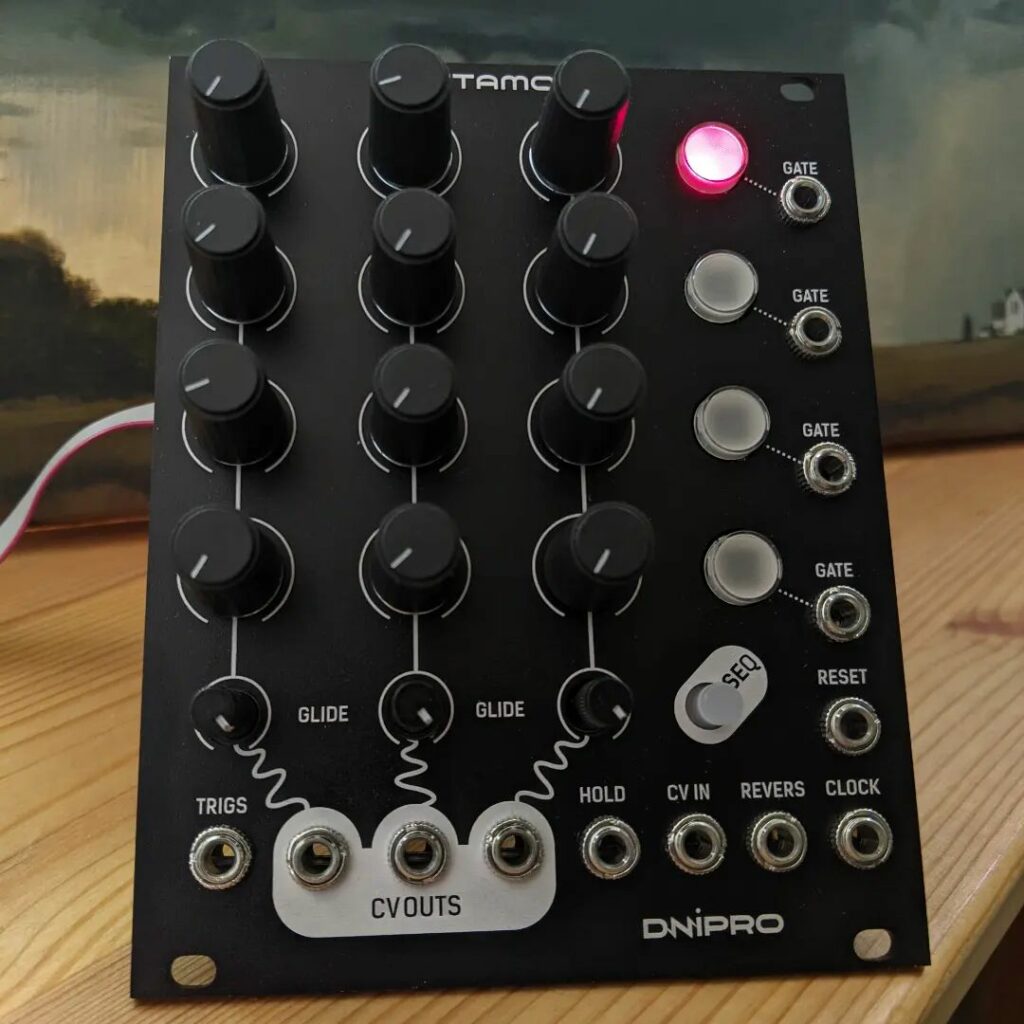
Dnipro Modular Metamorph
Synth modules seem staggeringly unimportant in comparison to the far more serious issues facing Dnipro Modular’s home country of Ukraine right now, but the Kyiv-based brand continue to produce modules while also contributing to their country’s war efforts, recently donating a vehicle to the Ukrainian Armed Forces. Trivial as it may be in the grand scheme of things, the brand’s Metamorph sequencer/programmer has also been released in a new batch with black panels, giving us the chance to take a closer look. Inspired by a Serge Tcherepnin design, the Metamorph is a three-channel CV source with built-in four-stage sequencer, allowing you to set up CV presets, recall or sequence them. It’s an intuitive module to use, not overly complicated but with nice touches like individual glide/slew controls per channel. You can also chain two modules to turn it into a three-channel/eight-stage sequencer. It’s fantastic value at just over £230 and makes an appealing alternative to the classic Make Noise Pressure Points/Brains combo.
Greg Scarth